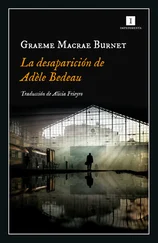Manfred had to board a train without delay. He raised his eyes to the departure board. It was now 10.43. The next train was for Munich. Manfred rejected this. It was too risky to attempt to cross the border. The next three trains were local. That was no use either. The fifth was an express to Paris. Manfred’s heart leapt for a moment. How easy it would be to disappear in such a metropolis. He could keep his head down for a few days and then, when things had settled down, move on. He had nothing but the clothes he was standing in and the few banknotes in his wallet, but, Manfred told himself, that was the way it had to be: that in order to disappear he had to leave everything behind. But Paris would be a mistake. The capital was the first place Gorski would expect him to go. After the Paris train was the 10.53 for Basel via Saint-Louis.
Manfred looked anxiously towards the entrance. The two gendarmes were now making a leisurely circuit of the perimeter of the station. The terminal was quieter now and he felt exposed in the middle of the emptying concourse. He opened his copy of L’Alsace and held it in front of his face. Perhaps tomorrow it would carry a picture of his face above a caption reading, Fugitive sought in connection with disappearance of Saint-Louis waitress.
Manfred glanced out from behind the paper. The two cops were now standing directly beneath the departure board, next to the kiosk. The smaller of the two, who had spoken into his radio, was looking directly at him. He was young and fresh-faced and was growing a moustache, in an attempt, Manfred thought, to make himself appear older. Manfred held his gaze for a moment. His heart was beating rapidly. It was not clear whether he was observing Manfred or merely happened to be looking in his direction. Then the older of the two, who had been perusing the headlines of the day’s papers, nudged him and they moved off towards the centre of the concourse. Manfred folded his newspaper and started to walk towards the platform where, at any moment, the Munich train would pull in. It was all he could do to prevent himself from breaking into a sprint.
A FEW MOMENTS AFTER 10.49 a crowd of onlookers gathered midway along platform nine and on the platform opposite, appearing as if from nowhere like pigeons around scraps of food. Some stepped forward to look down onto the rails, before turning away with their hands over their mouths. Those at the back craned their necks to catch a glimpse of what had occurred. The two duty cops pushed their way to the front of the crowd and stood for a few moments transfixed like the others, before remembering their official role in proceedings. They turned, as one, with their arms spread and began to shepherd the crowd back towards the concourse. The older one spoke into his radio. Further passers-by continued to gather at the back of the crowd and those who were already there provided them with accounts of what had happened.
‘He was sprinting towards the train, then he tripped and fell onto the tracks.’
‘No, he threw himself, he definitely threw himself,’ said another.
‘I saw the whole thing,’ said a third man. ‘He walked quite calmly along the platform and then stepped off. It was as if he was sleep-walking.’
The driver of the train was helped from the cabin. He was shaking his head, ashen-faced. Later, at the inquest, he would testify that he had not seen the man until he had stepped in front of the train and that he had had no chance whatsoever of applying the brakes in time. The station manager, having been alerted to the incident, arrived on the scene and with the assistance of a gang of railway employees began to cordon off the two platforms. The incident would cause a great deal of disruption to the day’s timetable. The crowd of onlookers reluctantly began to disperse. When he had been assured that it was safe to do so, the younger of the two gendarmes climbed down onto the tracks and began to search through the victim’s pockets for identification.
THE RESTAURANT DE LA CLOCHE was unusually busy for a Thursday evening. Two couples in their early thirties were eating together at the corner table. The women were attractive and fashionably attired. They had placed their orders only a few minutes before half past eight. They did not appear to be from Saint-Louis, at least neither Pasteur nor Marie had seen them before, and they were evidently in no hurry over their meal. They had ordered a second bottle of wine even before their main courses had arrived and a third was duly ordered. They chatted loudly and unselfconsciously and laughed raucously at each other’s jokes. Pasteur glared at them from his station behind the counter, but they were oblivious to his black looks. He muttered to Marie as she passed that they must think they were in a Parisian bistro, his standard put-down for customers who he regarded as too loud, flashy or otherwise not to his liking. Marie smiled indulgently. She was in a good mood and was not going to let her husband’s grouchiness spoil it. In any case, she enjoyed playing hostess to a younger, more fashionable clientele. The better class of customer liked to eat late and linger over their food. It would have been horribly provincial to refuse to serve them on account of an arbitrary rule. The Restaurant de la Cloche might not be a Paris bistro, but neither was it a canteen. Twice Marie had approached the table to enquire if everything was to her guests’ satisfaction, resisting the urge to apologise for the rustic nature of the cuisine, and on both occasions had been heartily reassured. The young man in spectacles had even sent his compliments to the chef on account of the ham hock terrine . Marie had blushed deeply, the terrine being her own creation.
The two other parties still eating had obligingly agreed to have their coffee brought at the same time as their desserts. The tables by the window were occupied in the main by local people. Lemerre, Petit and Cloutier were naturally in their place at the table by the door, the pack of cards in the centre of the table in readiness for the game that would soon begin.
Manfred was not at his place by the bar and a man Pasteur believed to be a travelling salesman had taken his place. He lunched at the restaurant on an irregular basis. Pasteur was not surprised at Manfred’s absence given some of the rumours that had been circulating. It made sense for him to keep his head down for a few days, but Pasteur was sure he would soon be back. The hubbub of conversation emanating from the tables by the window and from the crowd of customers gathered at the counter drowned out even Lemerre’s voluble pontifications on the day’s developments. Pasteur was in no doubt that the sudden popularity of the Restaurant de la Cloche was due entirely to its central role in the recent goings-on. He would be loath to admit it, but he gleaned a certain pleasure in his establishment’s sudden notoriety and place at the centre of local life. Of course, things would quickly return to normal, but the publicity would not do business any harm.
Only the focal point of the day’s drama seemed oblivious to the commotion. Adèle took the main courses to the group in the corner of the dining area at her usual languid pace and with her customary sullenness. She betrayed no sign of being aware that all eyes in the room were following her every move and that her reappearance was the subject of the most lurid speculations. When she had turned up shortly before lunchtime service, Marie had taken her upstairs for a talk. Pasteur was not privy to what had been said and nor would he ask. If Marie chose to divulge what had passed between them, she would do so in her own good time. Later, the cop, Gorski, had turned up and Adèle had again been summoned to the apartment. All Pasteur knew was that it had been agreed that Adèle would return to her former place on the rota. In addition, Marie had decided to keep her niece on to assist at lunchtime service. Pasteur had looked askance at this suggestion, but Marie had brushed off his objections. It would hardly be fair to dismiss the girl when she had so obligingly stepped into the breach caused by Adèle’s absence. In any case, they were often short-handed at lunch and Dominique had only just learned the ropes. Pasteur had shrugged. Sometimes things changed. It couldn’t be helped.
Читать дальше












